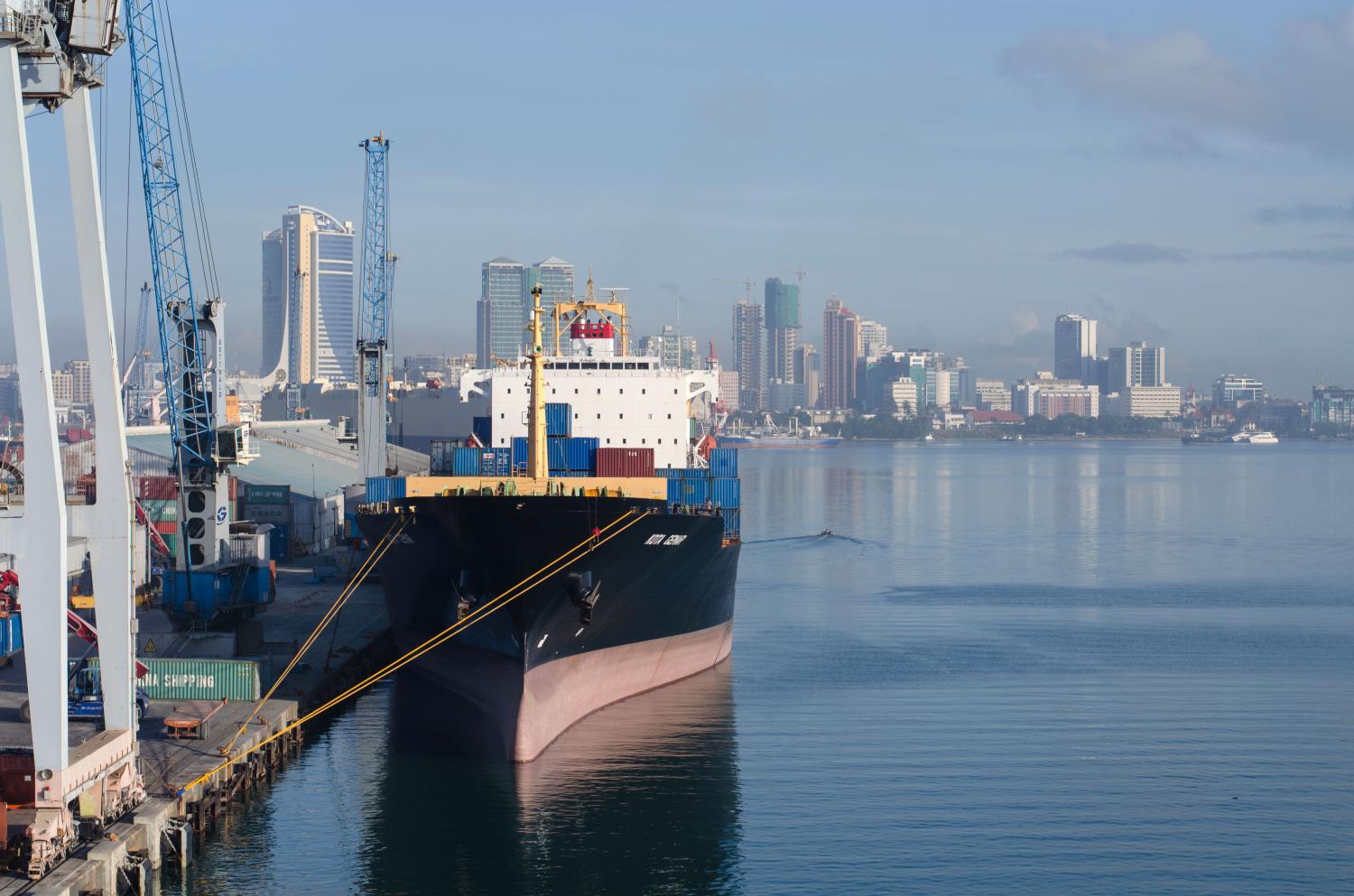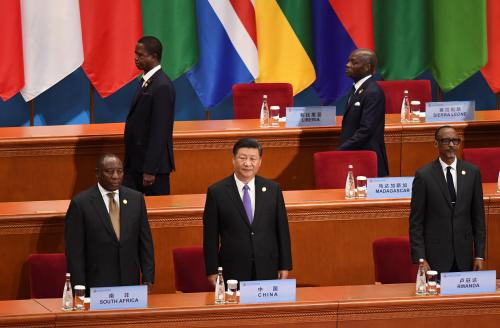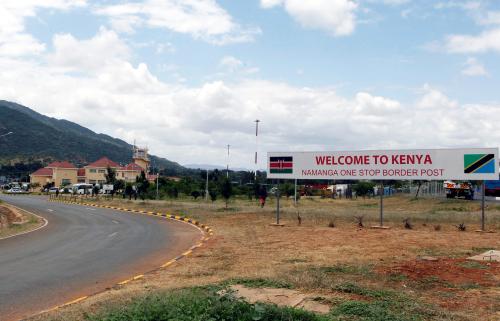Introduction
Financial sanctions tend to hurt both the sanctioned and the sanctioner, but they also threaten to hurt countries that are financially interlinked with the sanctioned country. Recent sanctions levied on Russia by the United States and the European Union in response to Russia’s invasion of Ukraine are disrupting global trade and financial networks across the world, including in Africa. The sanctions prevent U.S. and eurozone banks, their foreign affiliates, and Russian banks based in the U.S. and eurozone countries from facilitating dollar and euro transactions on behalf of Russian entities. The problem for Africa is that roughly 95 percent of all trade is invoiced in these two sanctioned currencies alone and that a vast majority of Africa’s $14 billion trade with Russia is likely denominated in these two currencies.
This paper uses a recently released dataset that measures the currency of trade invoicing to estimate the share of African trade that will be disrupted—that is, current financing pathways rendered inexecutable—due to the sanctions levied by the U.S. and eurozone countries on Russia (we call these effects “disruptions,” rather than losses, because they have not yet been realized, and it is uncertain how trade partners in Russia and Africa will respond to reduced financing options). We find that currency sanctions alone have the potential to disrupt 1.8 percent of all African trade and, for some countries, upwards of 5 percent of trade revenue. We also argue that for a host of political, economic, and financial reasons, these figures are a lower bound for potential disruptions. These figures, though not large enough to prioritize, are too large to dismiss during a difficult financial period for many African governments. We also surmise about the knock-on effects of the sanctions, including the potential for escalating food insecurity, change in commodity prices, demand for alternative currencies, and the future of African trade relations.
This paper is organized as follows. Section 2 delineates the sanctions that have been—or will be—imposed on Russia and how they are likely to disrupt trade between Russia and Africa. Section 3 explains the data and methods used in our estimates for disrupted trade and revenue. It also presents our estimates for those disruptions. Section 4 contextualizes our findings in the larger scene of the direct impacts of the conflict, the threats it poses on food security, the possibility of new global reserve currencies outside the dollar or the euro, and the future of trade finance in Africa. Section 5 concludes and offers policy recommendations.
Download the full policy brief







